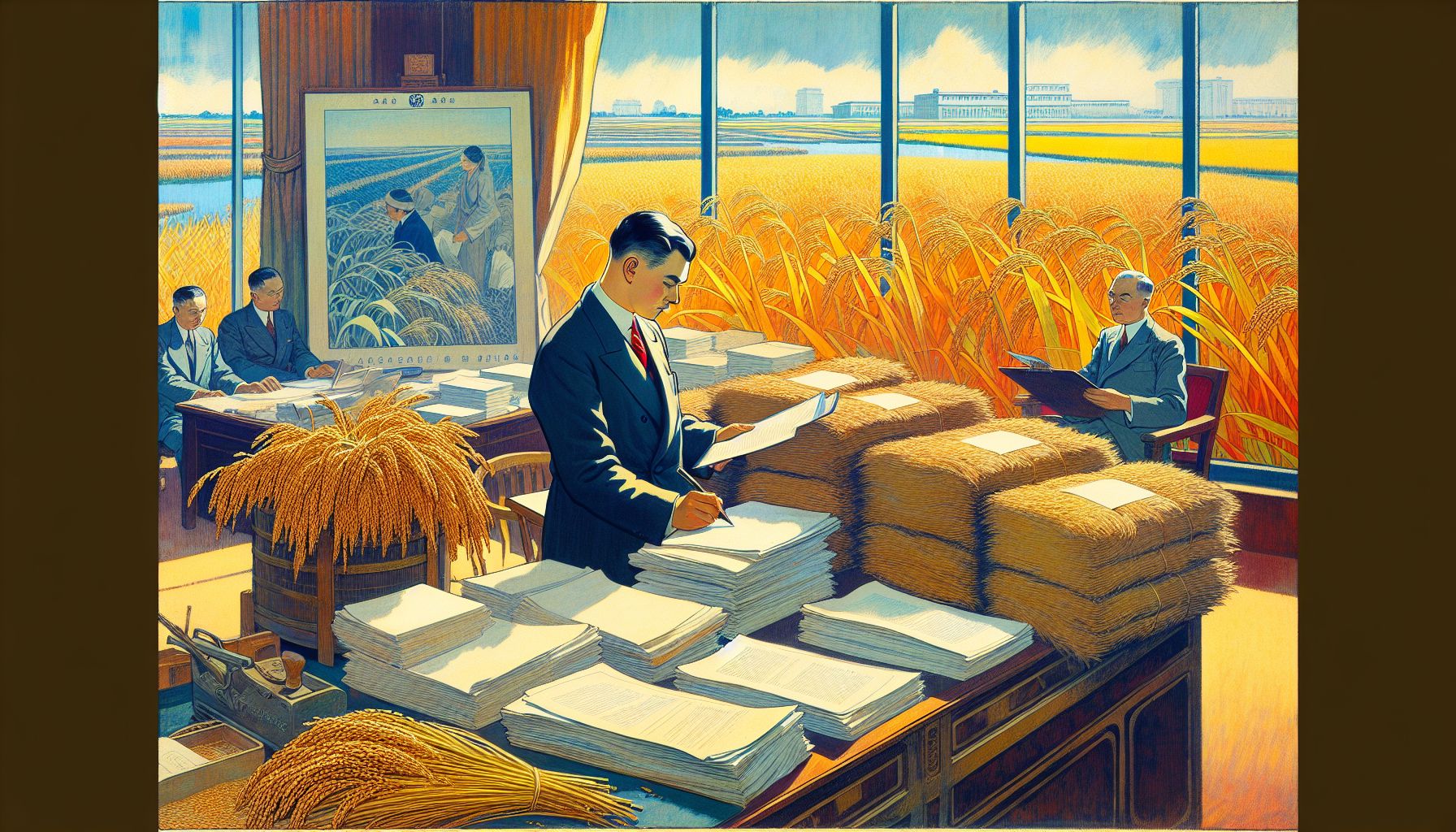Japan's Government Considers Purchasing Stockpiled Rice Amid Price Concerns

Tokyo, Thursday, 10 July 2025.
On 9 July 2025, Japan’s Agriculture Minister announced potential stockpiled rice purchases to stabilize prices and support farmers, reflecting efforts to address challenges in the agrifood sector.
Stabilizing Rice Economy Amid Challenges
Japan is facing dwindling rice prices as the upcoming autumn harvest approaches, with spot prices dropping below ¥30,000 per tonne. This price decline has prompted cautions amongst buyers, highlighting a cautious market environment [1]. In response, the government, led by Agriculture Minister Shinjiro Koizumi, is considering purchasing stockpiled rice as a measure to stabilize these falling prices and support the agrifood sector [2].
Assessing Agricultural Threats
Amidst these economic strategies, the threat of pest outbreaks looms large. The Ministry of Agriculture has issued warnings regarding anticipated widespread appearances of stink bugs, which notably damage rice grains. Alerts are currently active across eight prefectures, fueled by the hot summer weather, and pose a risk of significant discolored rice outbreaks [3].
Government’s Strategic Moves
To counter the economic and environmental factors impacting rice production, Japan maintains a robust policy of over 1.24 million tonnes of rice reserves. These stockpiles are crucial not just for stabilizing prices but also as a buffer to ensure steady supply and prevent market disruptions [4]. Concurrently, initiatives are underway to promote high-yield rice suitable for livestock feed, with contests open for entries until late August [5].
Regional Focus and Future Plans
In efforts to gather firsthand insights and advocate for policies enhancing farmer’s income, Minister Koizumi visited the rice-producing regions of Ibaraki and Saitama prefectures [6]. Here, dialogues with local stakeholders drive a nuanced understanding of the unique challenges faced by the rice sector and shape government strategies towards fostering a resilient agricultural economy [7].
Bronnen
- www.agrinews.co.jp
- www.agrinews.co.jp
- www.agrinews.co.jp
- www.jacom.or.jp
- www.maff.go.jp
- jp.reuters.com